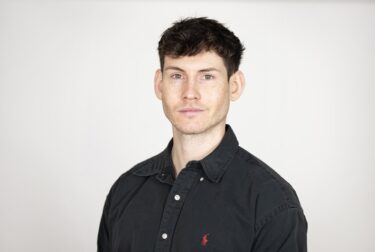Profile interview: Oliver Groarke, Head of Marketing and Future Markets, BGEN.

At BGEN, no two roles are the same, so we are talking to colleagues across the organisation and asking them five questions to get insight and understanding of their journey here and how they fit into the company.
This week the Cop26 meeting commenced in Glasgow, Scotland, so we thought it would be good timing to talk to Oliver Groarke, who is a huge environmental advocate here at BGEN and one of the spearheads of our carbon reduction journey.
Can you tell us a little about your background and the path that has led you here?
My parents fostered children since I was four, which involved over 25 children coming to live with us through my formative years. I think the process instilled in me a huge sense of gratitude for my life circumstances, as well as compassion and empathy for others.
To further my education, I studied for a degree in Business Management at Leeds University, before embarking on a master’s in Law. Bolstered by my academic record (I had especially excelled in economics), I applied – and was accepted – to Diageo’s European Graduate Program.
During the programme, I worked for three years across sales, public relations, and events, eventually culminating in a position of European Brand Manager.
Following a family bereavement, I took some time to reassess what was important to me. I moved back to my native Manchester and undertook an MSc in International Development and Environmental Climate Change Sustainability, gaining a distinction.
It was at this time that I was offered the position that I couldn’t refuse, which has brought me here today! I spend 50% of my time heading-up the marketing department – bringing in concepts and ideas from a consumer brand perspective, 25% of my time launching the BGEN International subsidiary in Africa, and a further 25% of my time driving the commercial clean energy offering.
I’m very fortunate to be in a position now where I can apply my theoretical and practical knowledge and experience, and we are making better efforts to communicate with all of our stakeholders and help them to understand who we really are.
What does your average day look like?
As everyone knows, it is hard to predict what each day will bring, and this is what makes it exciting!
I usually start the day with exercise – I think it is vitally important to get your mind right for the tasks at hand and exercise allows me to do that.
I am generally more focused in the hours before lunch, so this is when I spend time on planning and arrange creative and strategic meetings.
I’m pretty much at the whim of my calendar, taking between 3 and 8 meetings a day with anything from two to twenty people. If I take today as an example, we started with a 2-hour budget planning session, then reviewed our social performance and revisited our marketing events strategy before closing off the day with a commercial ideation session.
The subject matter can change very dramatically in no time at all, so I spend a good amount of my time organising my notes, making lists and updating documents and communications.
Has anything taken you by surprise?
For me it would be how open the business is to new ideas and how it fosters innovation.
If you show passion for an idea, do the costings and the figures, show how it will be implemented and demonstrate how it aligns to the business strategy, the company is likely to back you.
Lots of the companies in London claim they have this innovative culture, but I’ve seen it first-hand here!
What do you currently see as your biggest challenge?
Moving climate change to the top of the agenda, every day in all circumstances. Large private companies can have huge impacts – a fundamental shift in culture and reduction in carbon is a commitment I make to myself every day.
What advice would you give to someone setting out in their chosen career?
I’ll share the three pieces of advice that I come back to every day:
Never stop learning. It doesn’t have to be in a formal academic setting, like my background. But the world is constantly changing, and if we stand still, we get left behind. By staying informed, we remain relevant and can be proud of the value we bring.
Be organised. This is as much to do with mental health than anything else. To avoid stress and burnout, breaking down what you have to do can make even the most overwhelming tasks manageable. It’s no coincidence that our list pads always go out of stock before anything else!
Give yourself a clear, singular purpose, which can cut across all aspects of your life. Revisit this to guide you when you’re getting caught up in the weeds and need to zoom back out to the bigger picture. My personal example of this is ‘see the beauty in everything, every day’. This keeps me positive and allows me to see challenges as opportunities. It means that I can check in on myself and make sure I am applying my life held values of gratitude and compassion, even when situations turn difficult.




